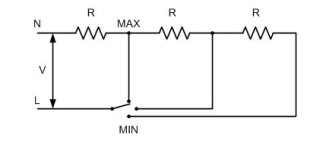Maintenance Man
Member
Hi to all,
We are having a debate at my school about the correct answer on a test we had. The question was “How does the heat dissipated in a resistor vary with the resistance when the voltage is held constant?” We have 2 instructors that are in disagreement with the answers. The 2 answers we are in deadlock with are directly or inversely. Any help would be greatly appreciated. One instructor explains it as when you have a resistor of a smaller size such as 100 ohms will give off more heat than a 10 k ohm resistor because more current will be flowing through the 100 ohm which to him is inversely because of the more amps with less resistance. The other instructor says that it is directly because the resistor gives off more heat as the amps increase. Which one is correct? Please help me.







We are having a debate at my school about the correct answer on a test we had. The question was “How does the heat dissipated in a resistor vary with the resistance when the voltage is held constant?” We have 2 instructors that are in disagreement with the answers. The 2 answers we are in deadlock with are directly or inversely. Any help would be greatly appreciated. One instructor explains it as when you have a resistor of a smaller size such as 100 ohms will give off more heat than a 10 k ohm resistor because more current will be flowing through the 100 ohm which to him is inversely because of the more amps with less resistance. The other instructor says that it is directly because the resistor gives off more heat as the amps increase. Which one is correct? Please help me.







